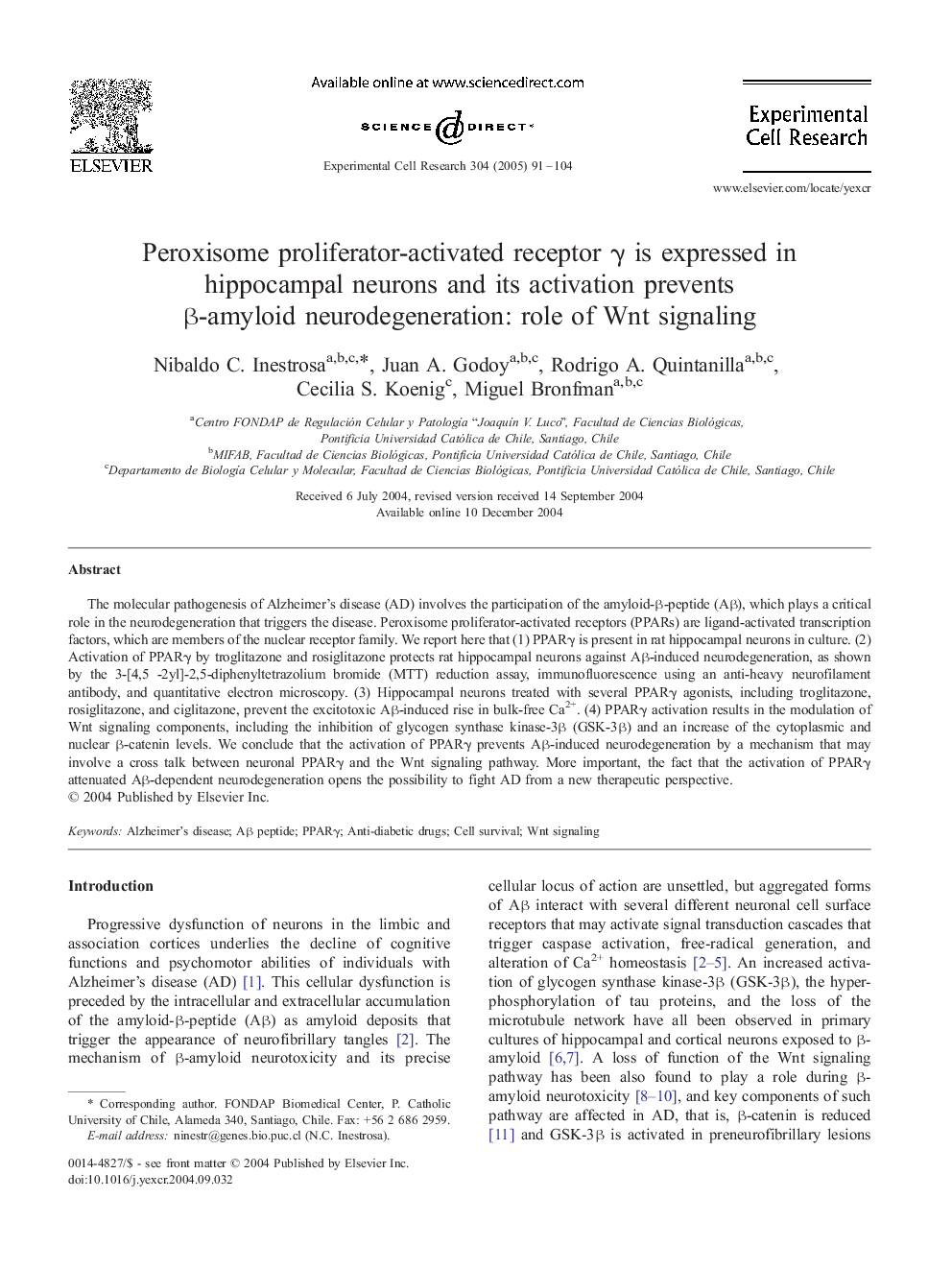| Article ID | Journal | Published Year | Pages | File Type |
|---|---|---|---|---|
| 10905600 | Experimental Cell Research | 2005 | 14 Pages |
Abstract
The molecular pathogenesis of Alzheimer's disease (AD) involves the participation of the amyloid-β-peptide (Aβ), which plays a critical role in the neurodegeneration that triggers the disease. Peroxisome proliferator-activated receptors (PPARs) are ligand-activated transcription factors, which are members of the nuclear receptor family. We report here that (1) PPARγ is present in rat hippocampal neurons in culture. (2) Activation of PPARγ by troglitazone and rosiglitazone protects rat hippocampal neurons against Aβ-induced neurodegeneration, as shown by the 3-[4,5 -2yl]-2,5-diphenyltetrazolium bromide (MTT) reduction assay, immunofluorescence using an anti-heavy neurofilament antibody, and quantitative electron microscopy. (3) Hippocampal neurons treated with several PPARγ agonists, including troglitazone, rosiglitazone, and ciglitazone, prevent the excitotoxic Aβ-induced rise in bulk-free Ca2+. (4) PPARγ activation results in the modulation of Wnt signaling components, including the inhibition of glycogen synthase kinase-3β (GSK-3β) and an increase of the cytoplasmic and nuclear β-catenin levels. We conclude that the activation of PPARγ prevents Aβ-induced neurodegeneration by a mechanism that may involve a cross talk between neuronal PPARγ and the Wnt signaling pathway. More important, the fact that the activation of PPARγ attenuated Aβ-dependent neurodegeneration opens the possibility to fight AD from a new therapeutic perspective.
Related Topics
Life Sciences
Biochemistry, Genetics and Molecular Biology
Cancer Research
Authors
Nibaldo C. Inestrosa, Juan A. Godoy, Rodrigo A. Quintanilla, Cecilia S. Koenig, Miguel Bronfman,
